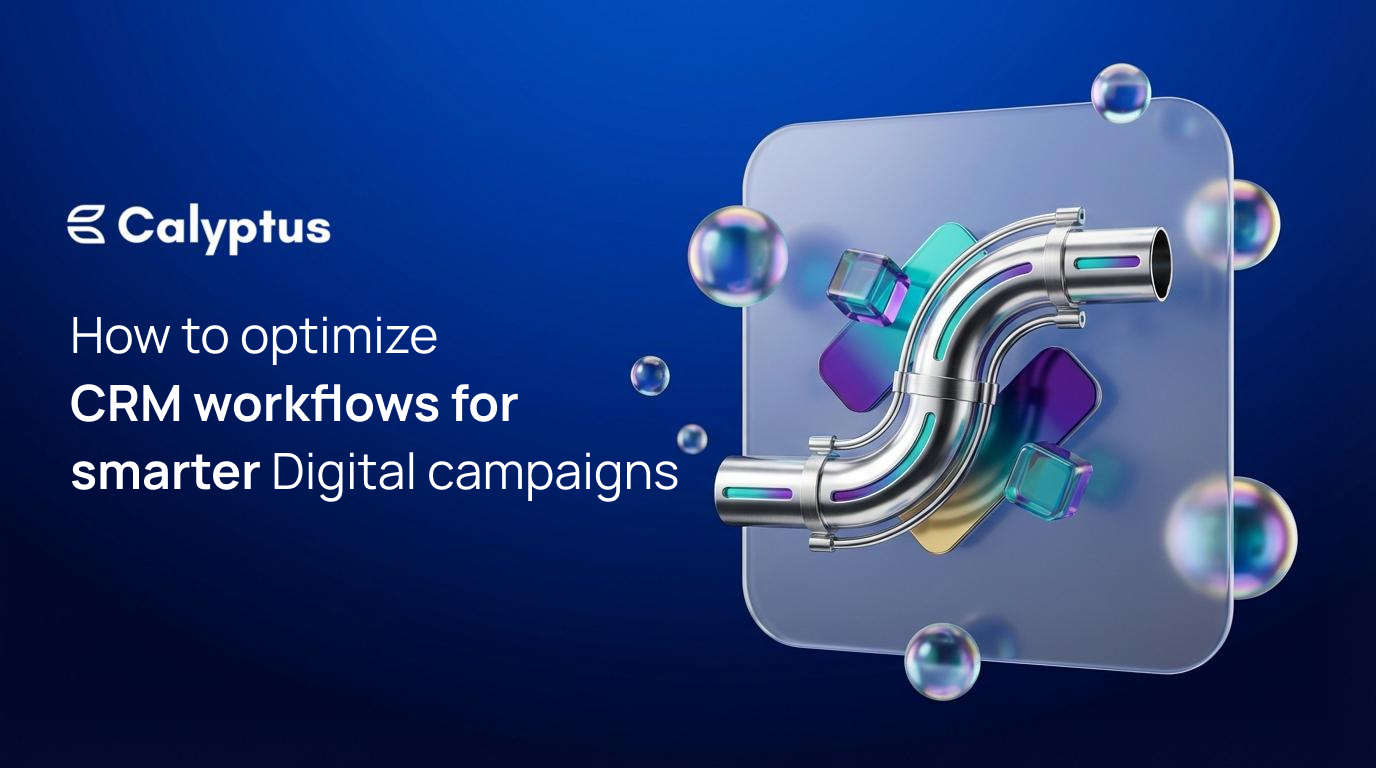Working In Manufacturing Taught Me Automation Better than a Coding Bootcamp
In this edition of Coffee with Calyptus, we sit down with Nishant who moved from optimizing metal cutting operations at TaeguTec to building smart contracts and is now working with Marketing and Automation at Calyptus. In this conversation, he shares how curiosity drove his leap into Web3, lessons from building developer communities through creative challenges, and how he's now leveraging AI tools like Clay, n8n, and Cursor to create workflows and enable rapid prototyping.

Your career spans from sales engineering at TaeguTec to smart contracts at Depo.io, what sparked your bold shift into blockchain?
TaeguTec was a great job where I got to visit different manufacturing industries, mainly those with cutting tool operations like automobile, aerospace, medical manufacturing, and medical implant manufacturing, and help them optimize their metal cutting operations. It was fantastic learning. I basically learned how everything in the world is manufactured in that role.
Manufacturing, despite being interesting, is a 500-year-old industry that's been around since the Industrial Revolution with continuous improvements, nonetheless. But what I was missing was the opportunity for hyper-growth and working with cutting-edge technology. Blockchain, on the other hand, was very, very new. I could see so many super smart people getting into the space and talking passionately about how different the world would look if this experiment became successful. We'd get basically open-source money that isn't controlled by a single state or government and doesn't succumb to censorship. Another aspect was that being a very new industry, there were so many opportunities that rewarded highly in terms of both growth and monetary compensation.
Working as a DevRel at Calyptus, how did engaging developer communities shape your approach to growth?
In its initial conceptualization, Calyptus was an education and placement platform. I helped create a lot of educational content around blockchain because it was very new back in 2021. I also helped many people in the Calyptus community acquire knowledge, solve problems, debug code, and build projects around blockchain technology, especially Ethereum, so they could be job-ready.
It was a very fulfilling experience because I could see so many candidates I'd interacted with or helped being placed in top-tier companies in the blockchain sector. Most of our growth came from social platforms like 𝕏 and email marketing. One of our most popular content series was "Solidity Challenges," where we'd provide code snippets of Solidity smart contracts and ask the community to find bugs in them. We'd get so many replies, and honestly, many times I'd get responses pointing out vulnerabilities I didn't even know about myself. This would lead me to go back and learn about these new vulnerabilities. So it was a net positive activity, not just for the community but also for my own personal growth as a smart contract developer.
At Calyptus, you're leading automation and digital content strategy, how are you leveraging AI tools to transform content workflows and scale growth?
Right now, we're experimenting with a lot of AI tools, basically whatever we can get our hands on and think of a use case for. For example, we're using AI-enabled tools like Clay and Instantly for email marketing and sourcing. We also use generative AI tools like Midjourney, Nano, Banana, and Veo3 to create content for our socials. Our recent Batman interview was a quirky example of that.
We also love automating small-scale repetitive tasks using n8n. For example, I recently created an n8n bot that fetches daily news related to new AI developments and posts summaries in our Slack channel so we can read them and, if needed, create social posts around them.
The most interesting and hard problem we're trying to solve right now is enabling employers to create custom tests that can examine candidates' capabilities, not just in technical sectors but also in non-tech sectors, and not just their skills but their ability to work with various software, including AI-enabled tools. For this project, thanks to AI coding tools like Cursor and Claude Code, I was able to sketch up a working prototype within days that our product team could use internally to get a feel for how the product would look and make design decisions. I think rapid prototyping i a great use case for AI coding tools.
Given your diverse background, what mindset or skill do you believe is key to thrive amid rapid tech shifts like AI and agentic automation?
The mindset that's helped me throughout my journey is being curious and interested in the latest developments in the sectors I care about, blockchain and AI. Whether it's watching the latest podcasts, following the news, or following masters of their craft on 𝕏 (which I think is a great place to get recommendations when you're beginning to learn about a new sector). I still remember the reason I got interested in blockchain in my early days of transition was because of a Lex Fridman interview with Vitalik.
Secondly, the habit of trying things hands-on and not fearing failure is a great virtue to have. I have hundreds of projects that I tried tinkering with or tried to create from scratch and failed. Many of these are still sitting either in my private GitHub or in my computer's folders. But I am sure these projects have helped me a lot in learning things that one can't usually learn just by seeing them or reading about them on the internet.
We hope you enjoyed this edition of Coffee with Calyptus. Stay curious, stay inspired, and keep building what matters. Explore more editions and insightful articles at https://www.calyptus.co/blog.




